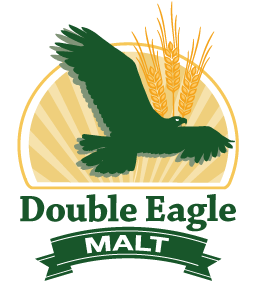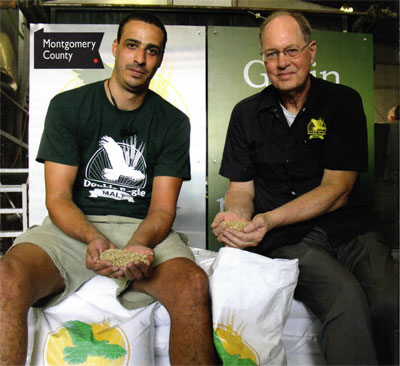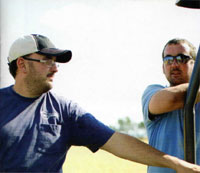
Crafting Local BrewsMontgomery County malthouse works with Pennsylvania farmers and brewers to put locally grown grain into craft beer.
There's a kiln in a small industrial park minutes north of Philadelphia that plays a crucial role in putting a taste of Pennsylvania agriculture into pint glasses across the state.
Since opening in 2015, Double Eagle has established a sturdy foothold in Pennsylvania's craft beer scene. Grains are sourced from a handful of farmers in Montgomery, Bucks, Dauphin, and Lancaster counties as well as a few nearby in New Jersey. And the malt is used by breweries all across the state – from Urban Village Brewing in nearby Philadelphia and Sly Fox across Montgomery County, to the Harrisburg Millworks and Selin's Grove Brewing in the midstate, to East End Brewing Company in Pittsburgh. Some on-farm breweries that produce their own grain, such as Great Barn Brewery in Bucks County, contract with Double Eagle to malt their grains. The malthouse even works with a few distilleries looking to bring unique flavors to their spirits. "More and more these days, these craft distillers are looking to push the flavor," said Scott Broussard, the malthouse manager.
"It's something that is really easy to believe in and it's something I personally believe in," Gladish said. "So it's no stretch at all to take that and run with it as a marketing professional." When Double Eagle sells malt to a brewery, it provides information about the farmers who produced the grain so that the brewery can help its customers better understand where their beer came from. Gladish also recommends that breweries market the beer made with the local malt as a premium product, something unique. Using craft malt is more expensive, he said, but that cost can be recouped because customers are willing to pay a little extra for a special beer made from local grains. "Where our product places really well is in the taproom itself," Gladish said. "This is a different product. You want to use it and promote it properly." "Part of what we're selling is a marketing opportunity," Broussard added. Broussard said his dream is for every brewery in the state to keep a "local tap" that rotates between beers sourced from Pennsylvania ingredients. It would be impractical, if not impossible, for a brewery to source all of its grain locally, he said. For one, buying all craft malt would be expensive. But it would also be difficult to meet that demand. If one of the state's larger craft breweries were to decide it wanted to source one of its flagship beers locally, it would need all the malting barley grown in Pennsylvania and then some. That's why Double Eagle isn't aiming to be any brewery's exclusive supplier of grain. Instead, the malthouse has positioned itself as one brewers work with for small-batch creations and one-off special edition beers that embrace the farm-to-glass connection.
That's the aim of Hershey-based Tröegs Independent Brewing, wich plans to produce a Scratch Series beer with Double Eagle malt made from barley grown by brothers Dustin and Cody Musser of Lancaster County. Representatives from Tröegs visited the Mussers' farm, just 30 miles from the brewery, as the grain was harvested recently. The Mussers, Farm Bureau members, got connected with Double Eagle through Penn State Extension a few years ago and have been producing malt for them since. They try to avoid putting all their eggs in one basket and saw malting barley as a good addition to the operation. "This was just another thing that we could do to easily diversify ourselves on the crop side," said Dustin Musser. The farm grows cash crops, raises beef cattle and also raises heifers for nearby dairy farms. The barley – although it's grown on just a small scale – has been a nice addition because it's a high margin crop, Musser said. And he said, it's also less risky for his farm than others because it could be used as cattle feed if it wasn't up to par for malting. Musser has to laugh a little when he thinks about being part of the story behind a local beer. Having an operation that does most of its direct business with other farms, he never thought he'd be tied into enthusiasm over buying local. It's exciting, he said, that people are interested in learning about the farmers who play a role in producing their beer. "They want to know the history of where it started and where it ended," he said. "It's pretty cool how it all comes full circle." While malting barly is still a small part of Pennsylvania agriculture, Musser suspects that may change as more and more brewers demand locally produced grain. Homebrewers could also ramp up demand, he said, as they look to produce beer made with ingredients from their communities. "I think there's potential for it to blow up and get pretty big," Musser said. "I think it's going to take a little time. But good things do take time." |







